two dozen
24 lessons for 24
You will never regret documenting life. I take photos of everything. I journal everyday. The daily time dedicated to documenting life is a gift to my future self.
You can find the gold in people through the questions you ask. I love playing this game - which questions can I ask (and how do I ask them) that will get someone to share the things they are most excited to talk about? Grad school provides many opportunities for this - What inspired you to pursue your studies, what do you like to do to be creative, what do you think we don’t talk enough about in your field? I attribute my fascination with the art of conversation questions to my photography career, where I went to many events by myself and had to interact with people to do my job.
Just because you show an interest in people, does not mean they will show an interest in you. They are not obligated to. This can be a hard pill to swallow, especially if you are someone who is so passionate, emotional, excited, and lives life with exclamation marks! It’s not personal - it does not mean your interests are not interesting, nor does it mean you are not an interesting person. When you do find people who do show interest in you, you will appreciate them more.
Unlearning scarcity mindset is a process I am still navigating. One of the ideas that’s stuck with me to overcome this is Andrew Garfield’s Modern Love interview, and his discussion on Onism: “The finite nature of us being here is the only thing that makes it meaningful”. I find the concept liberating. I will always have more places I want to see, more books I want to read, more side quests to pursue, more people I want to spend more time with. But I only have one body that can inhabit one place at a time - enjoy where it is.
Think less in ‘or’, and think more with ‘and’. This was first communicated to me when I did the Impact Labs, a leadership development programme. We discussed this question: are businesses or governments or nonprofits the most important stakeholder in impact? Someone challenged this question, saying it’s a false dichotomy - they’re all important. We lose nuance and complexity when we think in ‘or’ instead of ‘and’. The world and the decisions we make are intertwined - not simple categories of this or that. Ties in with unlearning scarcity mindset.
Handwriting is intimacy in a world of democratized digital access and communication. One of the things I’ve loved to do (especially as I moved abroad) is send postcards. I’ve also loved finding postcards in my mailbox from friends.
Cooking is a love language. Time and money spent cooking with (or for) people you care about is never wasted. When someone cooks for me, the gesture holds more meaning that surpasses most material love languages (one of my highlights this year has been learning to eat Biryani with my hands from my Bengali friends).
Try things twice. This applies to many things: food, sports, arts, friendships, dating. There are rarely any instances where you can be a perfect judge of a situation based on a singular impression. You need experience to form judgement.
Just because you have the time, does not mean you have the capacity. Your calendar does not account for the rest you need. Free time is not always available time. As a chronic over-scheduler, I often fall into this trap: an empty slot in my calendar quickly becomes filled with colour-coded event. You don’t need to schedule everything, including calls, socials, and catch-ups. You can be spontaneous, and there’s often a lot of fun stories waiting on the other side of spontaneous decisions.
Regret scares me more than failure. I live with this philosophy. Apply to that job. Start that small talk with that person you find intriguing. Ask someone for to take that awkward tourist photo of you. Start that project you’ve been thinking about. Regret is a sticky feeling you can never wash off, but failure is a temporary mindset. I like to live life by frequently asking myself, ‘when was the last time you did something for the first time?
Relationships are fleeting. I’m coming to the belief that many of my relationships have a pre-determined course. To me, this means that some friendships will wither out even if we try everything we can to preserve it. This also means that the friendships that are meant to be lifelong won’t require high maintenance, because there is an underlying lifeline keeping it alive. This does not mean to not invest in your relationships - it simply means that attraction can’t (and shouldn’t) be forced, and that every relationship, no matter its outcome, has a reason for being in your life.
Difficult conversations are necessary conversations. They’re difficult because they’re necessary. The good news is that 1) difficult conversations are easier to initiate over time with practice 2) difficult conversations show that you care about and respect the person.
Home is where you make it. As someone who has finally found a sense of home in the UK, I’ve realized that home is something you build, not something you find. Those streets you once discovered for the first time start to become your internal compass of the city. You start interacting with merchants at the spots you frequent, and that’s how you become a local. You host social gatherings in new places, which transform them from a neutral place into a meaningful space associated with people and stories.
External appearances do matter (to an extent). Growing up, I didn’t think much about my external appearance. The narrative I told myself was to focus more on my studies, and I didn’t want to seem ‘vain’ for caring about my appearances - thinking about the way I dress, how much makeup I wear, etc. But I’m becoming increasingly aware that for me, how I perceive my external self affects the way I enter a room or a conversation. We live in a society that relies on appearances - we pay attention to the way someone or something looks before we hear them speak. External appearances matter because we navigate the world with eyes open.
It’s fun to use social media as an excuse to build friends. With social media, it’s easy for me to share parts of my life, and naturally that has led incredible people to find me. Sharing Invite Health on Twitter & LinkedIn has introduced me to some of my closest friends I’ve made in the UK. This is the side of social media that I love.
Instead of saying ‘we should hang out’, send an invitation. ‘I’m going to this talk tomorrow, want to check it out with me’? ‘I’m cooking dinner at my place tomorrow, want to join me’? ‘I’m going to this party with my friends over the weekend, do you want to join?’. An invitation is a commitment, something for both of us to look forward to.
The best way to learn about personal finance is to talk more about personal finance. Money continues to be a taboo or uncomfortable topic (understandably so). However, money, like health and illness, is universal. Talking about money does not benefit some more than others; it benefits all of us. I start small - I have become more comfortable asking friends how much rent they pay, what type of salaries they earn, how much they get paid for contract gigs, etc. Personal finance education is a source of empowerment - both economic and health-wise - and it starts with more frequent, more transparent conversations about money.
Aside from physical health, your social circle is the biggest determinant of health. Research says so, and I amplify this. The stability of my relationships provides me with the foundation and encouragement to give love to others. And giving love makes me feel good; I feel my best when I share love into the world.
To give back is a huge privilege. I know what’s it’s like to be on the other end of a cold DM, or to be the younger person in a conversation, seeking support from someone you look up to. What is common sense to you is often novel knowledge to someone else. I aim to do my best to be the person my younger self needed and can look up to. To me, that’s what success is.
Remember, your participation in a techno-digital society is voluntary (to an extent). You can do more things without your electronics. Go on a walk without your Airpods. Take photos with your DSLR camera instead of your phone. Play music off of a CD (or better yet, go listen to some live music). Try incorporating more analog activities into your life and get offline.
I don’t believe in overnight success, but I do believe in compounding (as it applies to careers). I’ve heard people say that you can ‘increase your surface area of luck’. Your actions compound - it’s all about the cold emails, events, small talk, relationships, introductions. No one individual thing will make you ‘successful’ or get you to where you want to be (and don’t believe anything that tells you otherwise). This essay articulates this idea further.
Trust your intuition. Your body reads the situation before your mind can analyse it. Your heart races in anxiety when you stop yourself from having a difficult conversation. Your muscles relax when you are in the presence of people who make you feel safe and loved (and tense up in the opposite). Your steps become a bit heavier when you make a decision you regret. When you have an intuition, listen to what it’s trying to tell you - it’s often right.
Form your own judgement. You don’t have to always adopt the popular opinion just because it’s popular. It’s tempting and convenient to accept the facts in front of you. Question the things you read and hear. Explore the ‘how’ and ‘why’. Chase the rabbit-holes of curiosity, don’t just seek conformity.
To be able to grow old is a privilege. I’ve had close reminders from loved ones that being alive is a gift. When you confront news of loss, even if it’s from distant relationships, the finite nature of life haunts you again. “Life is a series of fleeting moments. Make sure to have fun.” - a previous partner.


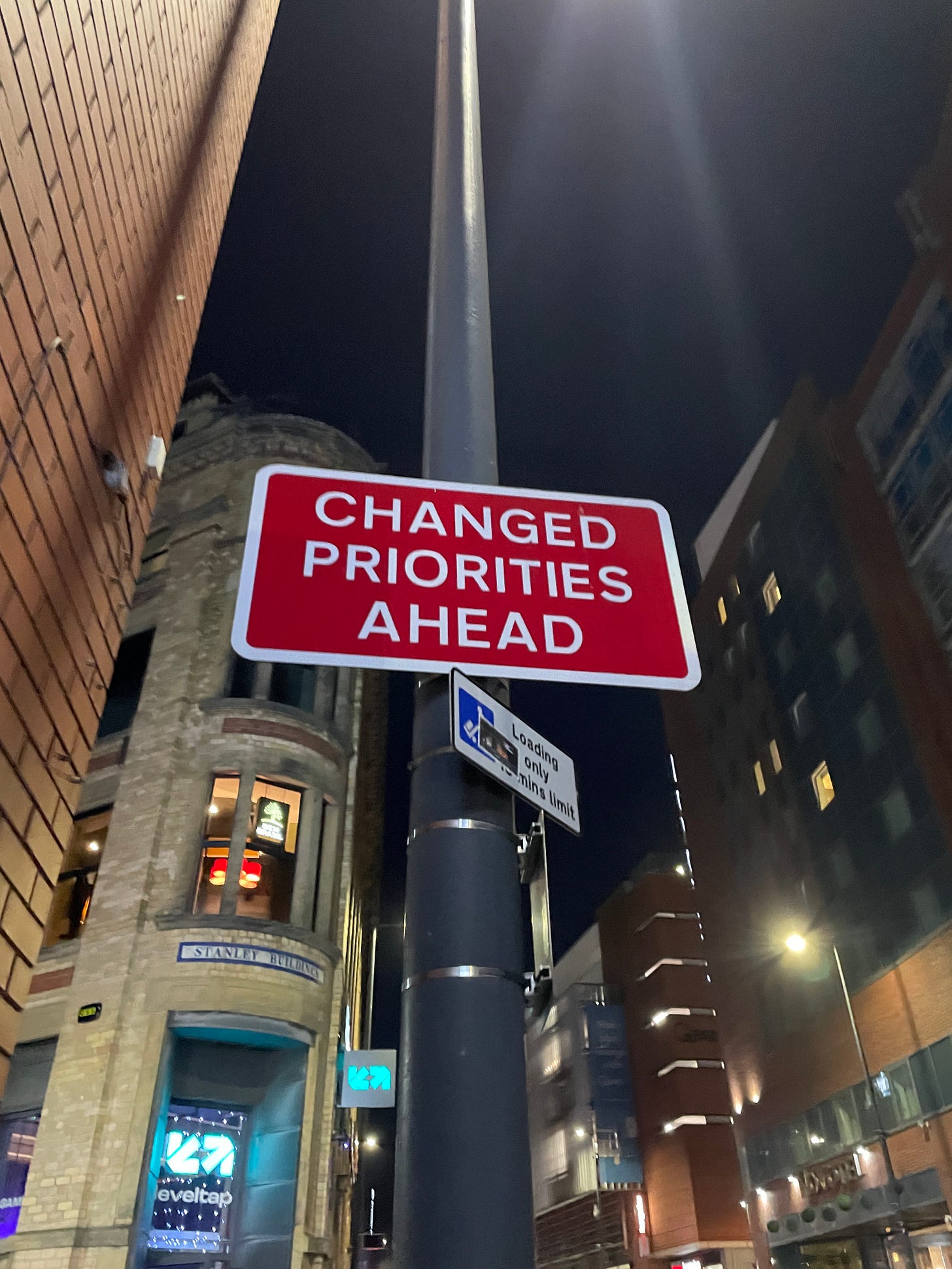
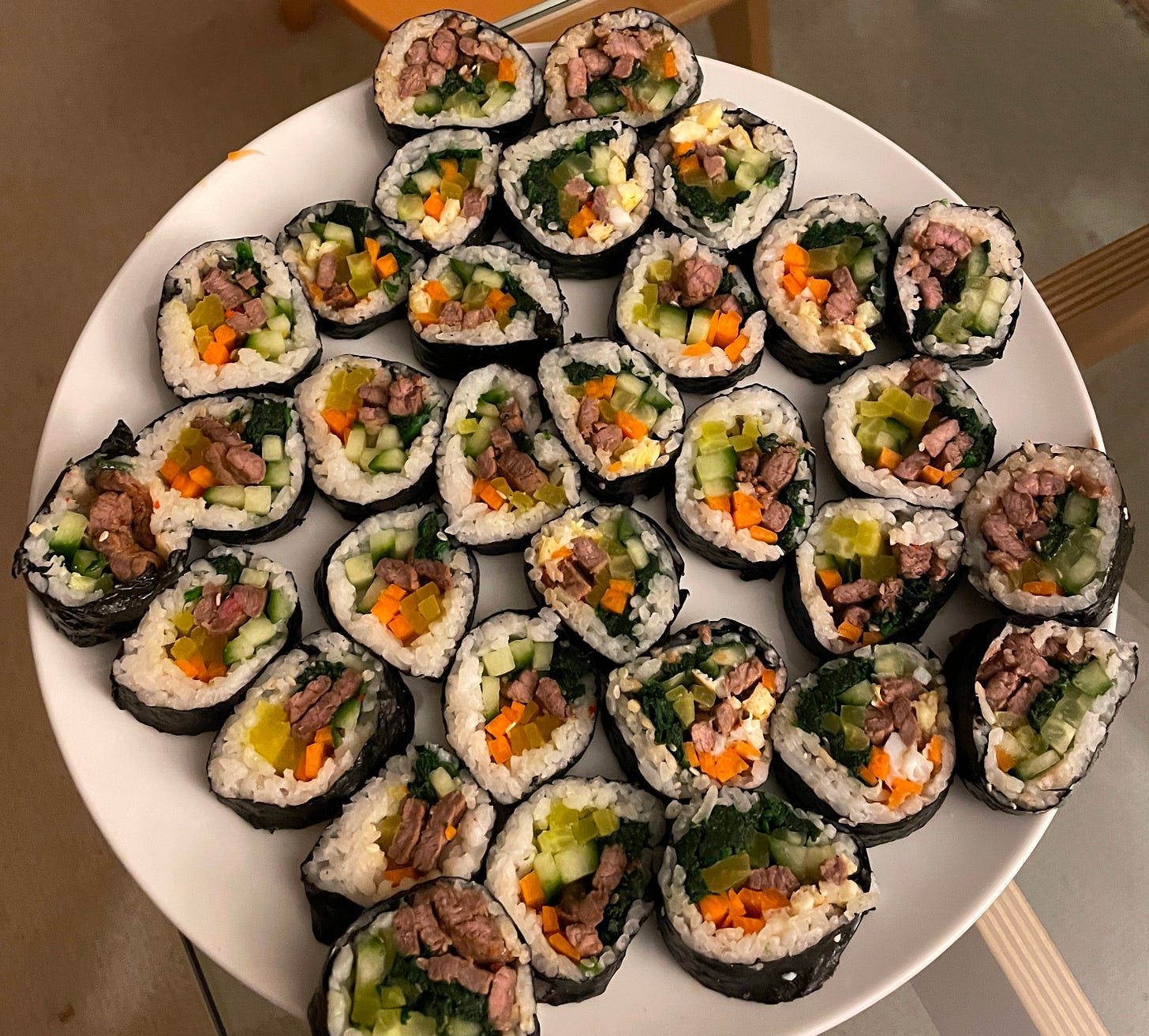
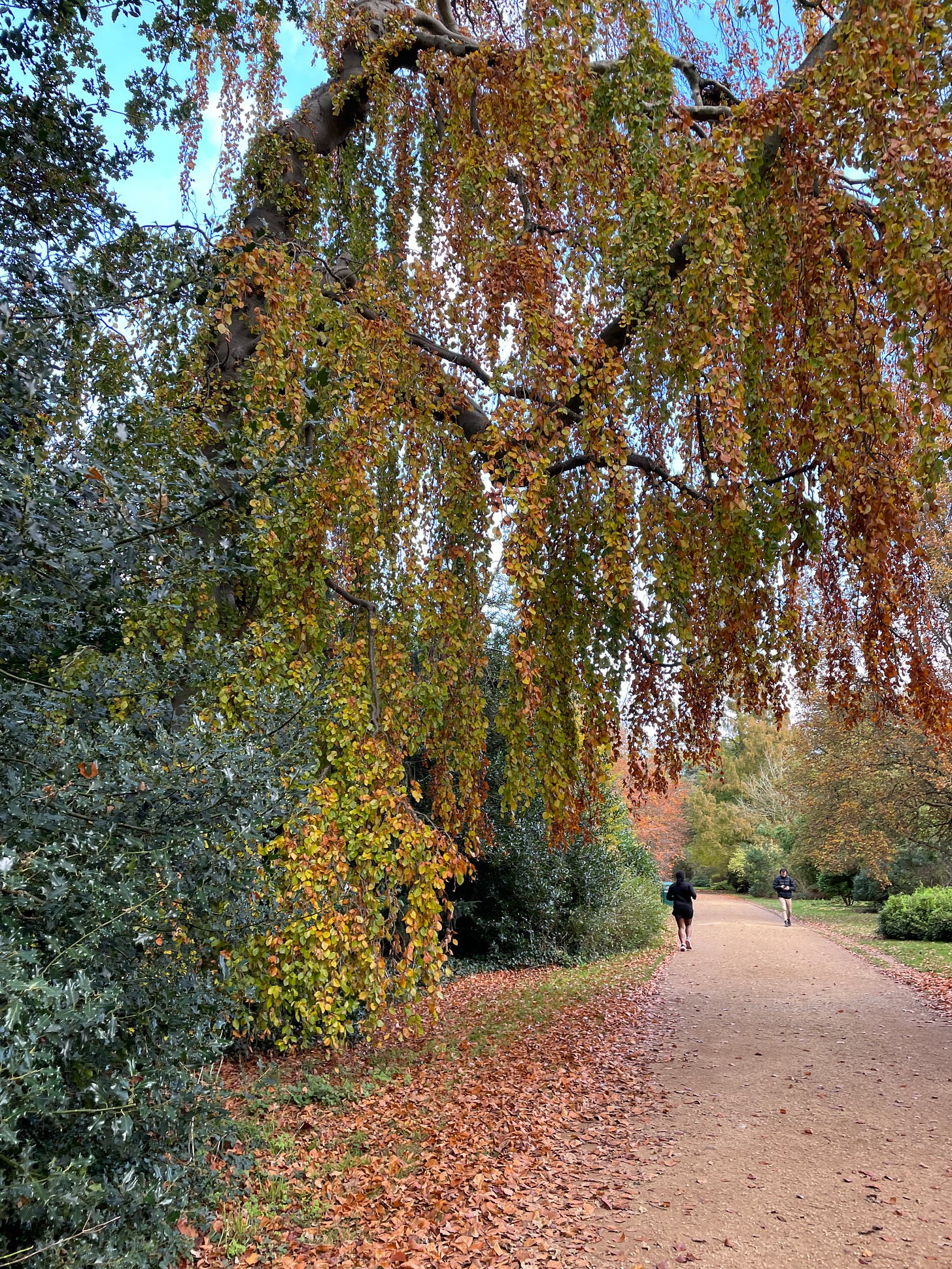
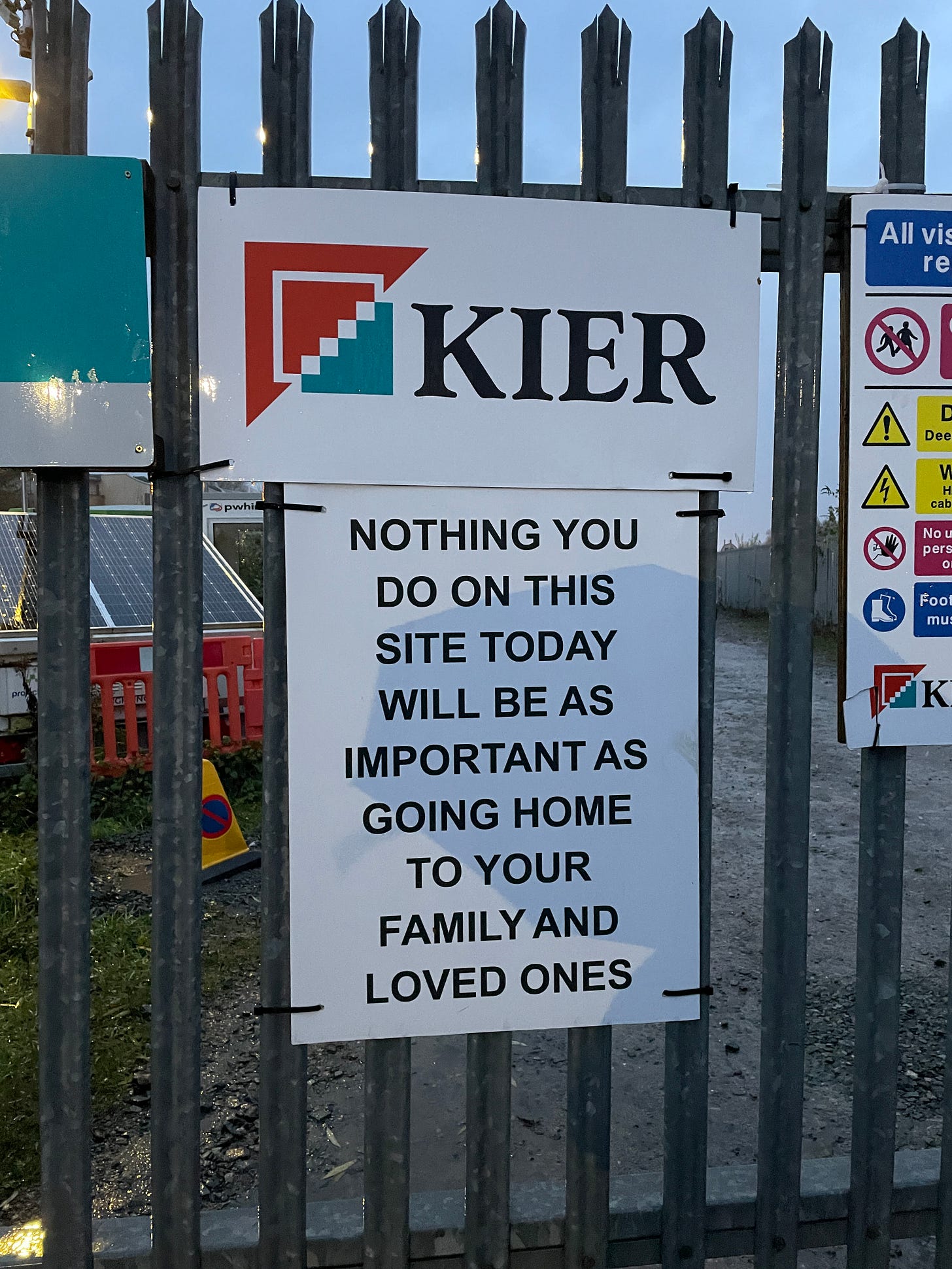
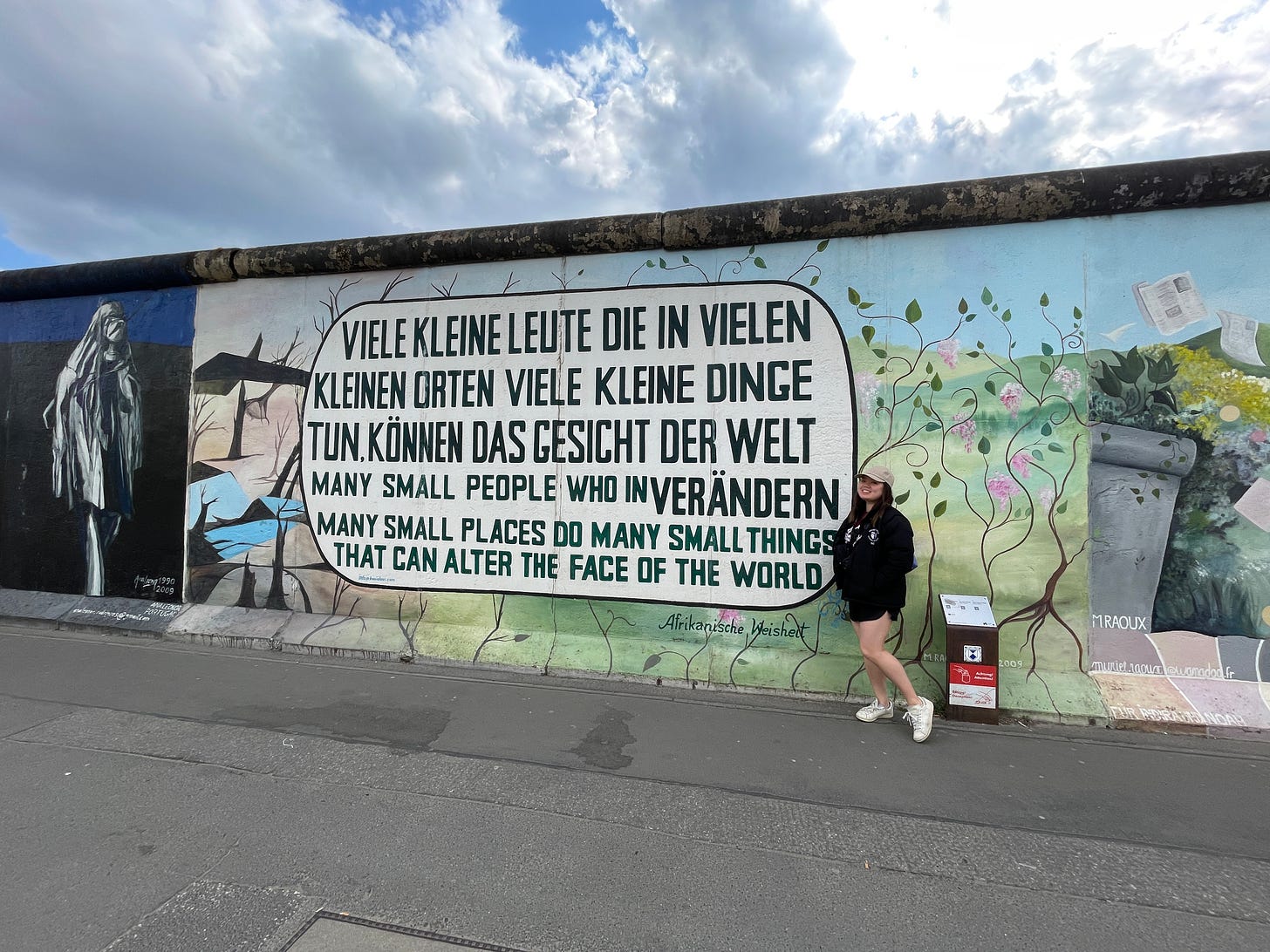
I want to put this on a poster and frame it ❤️
Well said!